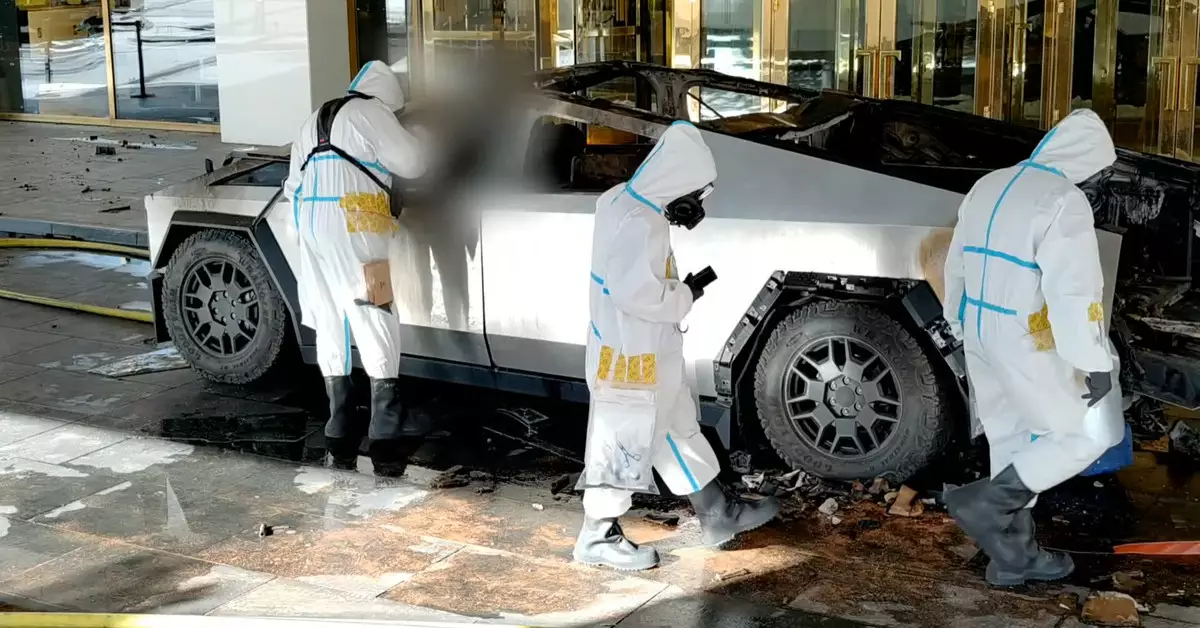Generative artificial intelligence has emerged as a transformative technology, capable of producing text, images, and even music based on user inputs. While its potential benefits are widely celebrated, recent events have sparked serious concerns regarding its misuse. An incident involving an explosion in front of the Trump Hotel in Las Vegas has raised alarms about how generative AI can be exploited for harmful purposes. This article delves into the specifics of the case, the implications for AI technology, and the urgent need for better regulations.
On January 1st, an explosion rocked the area near the Trump Hotel, sending local law enforcement scrambling to investigate the shocking event. The investigation revealed that the suspect, Matthew Livelsberger, an active-duty soldier, had a “possible manifesto” on his phone, along with various communications that suggested a premeditated effort to carry out an attack. Authorities discovered video footage showing Livelsberger pouring fuel into his truck, indicating he carefully planned the explosion.
However, it was not just the physical evidence that caught the investigators’ attention; Livelsberger’s use of ChatGPT in the days leading up to the explosion raised serious ethical and security questions. His inquiries ranged from basic explosive information to queries about legal gun acquisitions, which directly tied his actions to the generative AI tool he used.
The revelations about Livelsberger’s online interactions highlight a sobering fact: generative AI, with its vast informational database, can inadvertently serve malevolent actors. Responses from OpenAI emphasized their commitment to preventing harmful uses of their technology, stating that their models are intended to refuse harmful instructions and minimize harmful content. However, the incident demonstrates a significant gap between intention and reality. Despite these safeguards, the suspect was able to access sensitive information, raising questions about the effectiveness of existing guardrails.
While AI chatbots are designed to avoid providing direct instructions for illegal activities, the ability to obtain publicly available information regarding explosives and firearms remains intact. This scenario exemplifies the limitations of content moderation when faced with inventive misuse. Investigators may realize the gravity of this issue all too late, as the suspect had already aligned his queries with a tangible plan for disruption.
According to local authorities, the explosion was categorized as a deflagration, a slower form of explosion compared to high explosives that generate a shockwave and widespread destruction. Investigators have speculated that a gunshot may have ignited the fuel vapor in the truck, producing a more extensive explosion involving a cache of fireworks and hazardous materials.
This analysis not only sheds light on the specific events surrounding the explosion but also invites broader discussions on how AI-related queries can influence real-world actions. Such a dangerous intersection of technology and criminal behavior demands an immediate evaluation from policymakers and technology developers alike.
This incident serves as a wake-up call for stakeholders involved in generative AI. As the rapid proliferation of generative AI continues, questions about safety, privacy, and ethical use resurface with increased intensity. Policymakers must step up to craft regulatory frameworks that can address the potential misuse of these technologies. Furthermore, companies like OpenAI must enhance their safety mechanisms to scrutinize user queries more effectively.
While generative AI holds the promise of endless innovation and creativity, it is essential to strike a delicate balance between its potential benefits and the risks it poses. Using this unfortunate incident as a catalyst for discussion, the conversation surrounding AI’s role in our society needs a firm push, directing it toward safer and more responsible use.
The Las Vegas explosion incident is a cautionary tale emphasizing the need for vigilance in how we engage with powerful generative AI technologies. As we strive for innovation, we must not overlook the ethical implications inherent in pushing the boundaries of technology. Educating users on the responsible use of AI, coupled with stringent regulatory measures, must become a priority to ensure that such tools do not fall into the wrong hands. The stakes are high, and as this case shows, the intersection of technology and human behavior can have grave consequences.


Leave a Reply